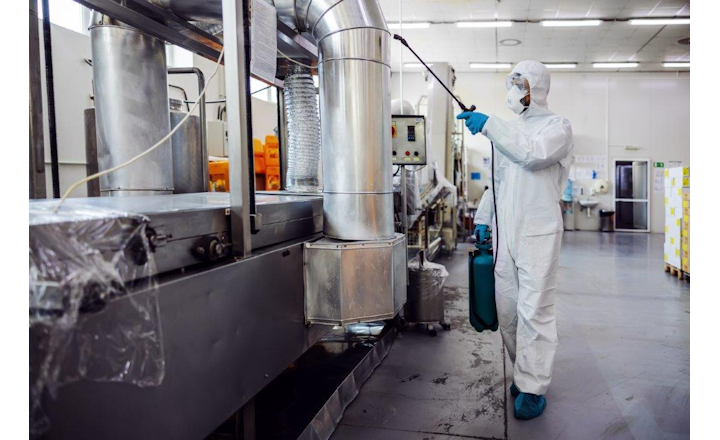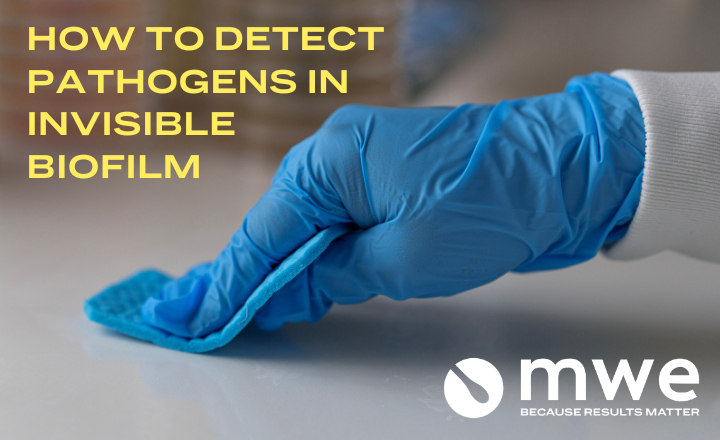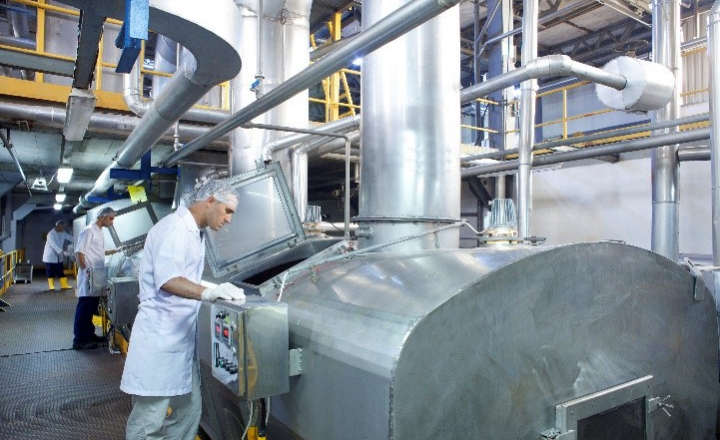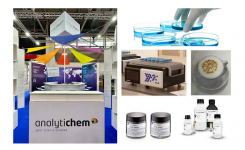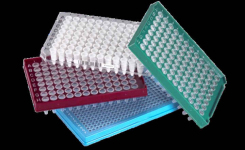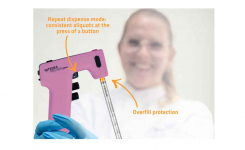Recent research from Campden BRI has shed light on the species composition of food industry biofilms and the most effective methods to remove them – helping food businesses minimise shelf-life-related issues often associated with biofilms.
The research found current methods used to tackle biofilms may not be as effective as previously thought, leading the researchers to investigate a targeted approach to help manufacturers identify and overcome their specific biofilm-related issues.
Rob Limburn, microbiology group manager at Campden BRI who led the project, said:
“Biofilms can play havoc with food manufacturers’ operations. Not only are they resistant to usual decontamination methods making them hard to remove, but when they do detach, they can easily spread around a factory leading to post-process contamination and reduction of a product’s shelf-life. They also often go undetected as the usual means of monitoring microorganism levels commonly do not detect the biofilm-forming organisms that cause problems, which may be in a viable but not culturable (VBNC) state. Defining the resistance of key spoilage organisms in their biofilm state has allowed us to establish and optimise procedures for decontamination and removal of biofilms in several food industry settings.”
Bacteria can stick to surfaces by producing a slimy layer of polysaccharides known as a biofilm. This layer is very difficult to remove and can protect the bacteria from cleaning and disinfection, leading to persistent spoilage or shelf-life issues. Biofilms are often complex, composed of multiple different microbial species, carbohydrates, proteins and DNA, and may harbour pathogenic species such as Listeria monocytogenes, Salmonella and others. For these reasons, biofilms have long been an issue for the food industry.
The three-year project investigated biofilms in factories from a range of sectors – including dairy, meat, fish, deli and ready meal plants.
Feedback during Campden BRI’s semi-annual member meetings highlighted that many food business operators were concerned that their methods of detecting and controlling biofilms were ineffective and potentially the reason behind persistent sporadic shelf-life issues.
To tackle this issue, the researchers first identified and isolated the key biofilm-producing organisms and used these to establish the most effective ways of removing them - trialling both the traditional and alternative approaches. The findings threw into question what we know about biofilms and how to control them.
Zoe Lambert, microbiology research manager at Campden BRI who conducted the research, stated how initial results came as a surprise: “We found that some of the common methods to decontaminate a surface with a biofilm weren’t as effective as the industry believes. In fact, we learned that combinations of chemical, enzymatic and/or physical approaches were sometimes needed to ensure biofilm removal.”
Working with the food industry, Campden BRI’s research has helped develop a targeted approach to help manufacturers identify and overcome their biofilm-related issues.
Limburn added:
“We’ve developed a service which will help our members to better understand and tackle their issues with biofilms. From growing the biofilms, trialling current methods and creating bespoke treatments, we can help businesses control persistent biofilm formers. This can save manufacturers time and money by identifying the best approach quickly.”
The project’s results will be made available to members of Campden BRI in the coming months.
For further information, visit Campden BRI or click on the Request Information button below.






